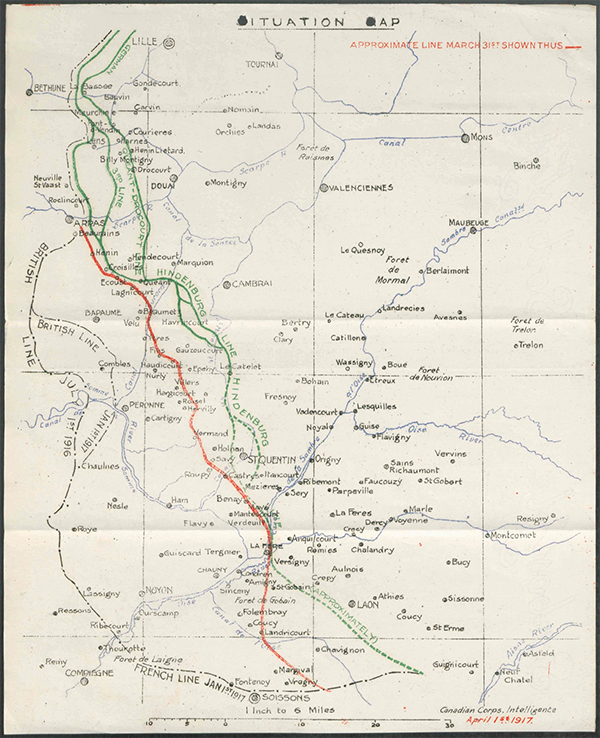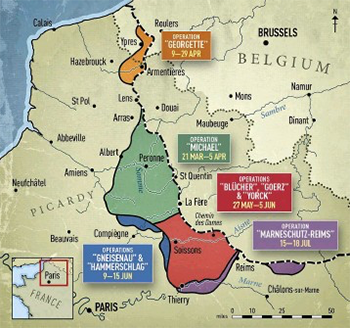Paul von Hindenburg: German War Hero, President
Part 2: A Long Defeat Russian Gen. Aleksei Brusilov led a fierce, wide-ranging counterattack in 1916. The Brusilov Offensive had devastating consequences for the Austro-Hungarian forces, resulting in large-scale captures and retreat. In effect, Germany was on its own in the East as well as in the West. Hindenburg took over command of his ally's forces in July; a timely infusion of Turkish troops stemmed the tide of Russian advance. After the great losses of life and little territorial gain at the battles of Verdun and the Somme, the German government dismissed its Chief of the Great General Staff, Erich von Falkenhayn; after a brief period, Hindenburg found himself the successor. He was later declared Supreme War Commander of the Central Powers. Ludendorff accompanied his commander and confidant, serving as logistical executor of directives and orders. As the war continued, Hindenburg deferred more and more to his onetime inferior in rank. The pair visited the Western Front in September 1916 and declared that the strategy would change, to one of holding on to what gains they had got. The result was the Hindenburg Line, a long, wide series of defensive fortifications designed to be easier to maintain than the current sprawling front. 
Despite this, Hindenburg and Ludendorff continued to call for more soldiers from the general populace and continued to drive that populace to produce more weapons and divert more resources to the war effort. Significantly, the commanders also returned to a policy of unrestricted submarine warfare on Allied shipping. The goal was to wipe out United Kingdom shipping; not only did that not happen, that strategy resulted in the United States's declaring war on Germany later in 1917. Also in 1917, Russian revolutionaries overthrew their government, creating what would become the Soviet Union. One of the aims of the leaders of this movement was an end to Russian participation in the Great War, and they were willing to agree to cruel concessions in order to achieve that overall goal. The result was the Treaty of Brest-Litovsk, signed on March 3, 1918. 
In the meantime, Hindenburg and Ludendorff had ordered more attacks. The Spring Offensives were successful at first, pushing French troops back toward Paris and making gains not seen since 1914; however, the addition of the United States to the Allies meant a large infusion of manpower, money, and weapons, and it wasn't long until Allied forces counterattacked. The Hundred Days Offensive broke through the Hindenburg Line and then into Germany itself. The German government reorganized itself into more of a representative one, as Max von Baden took over as Chancellor and the Reichstag, the legislative body, gained command of the government and the military. Seeing the writing on the wall, the newly restructured government began negotiations to end the war. The war did end, on Armistice Day, November 11, at 11:00 a.m. Before that, however, the military had to contend with a revolt. In the waning days of the Allied counterattacks, German soldiers were surrendering in droves, wanting to be taken prisoner rather than killed in battle. As well, discontent spread far behind the lines. Sailors at a naval base in Kiel refused orders and made a lot of noise about the downward spiral of the war's progress. The government responded too slowly to contain the revolt, and the sentiment spread to other army and navy bases. Workers joined the soldiers and sailors in organizing against the government. In influential Bavaria, the crowds were enough to throw out the king, Ludwig III, and declare the state a socialist republic. Similar efforts prevailed in the next few days in other cities. A revolutionary council took control of Berlin on November 9. Next page > The End of an Era > Page 1, 2, 3 |
|
Social Studies for Kids
copyright 2002–2026
David White




